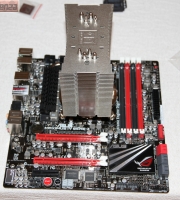
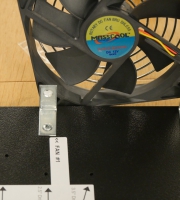
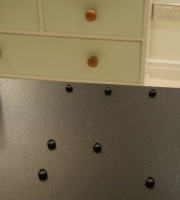
The week of May the 9th saw the release of Intel’s z68 chipset. Its mission? To combine the benefits offered by its two Sandy-bridge friendly elders.
In addition to boasting the over clocking potential of the P67 and the integrated display found on the H67, this new chipset also includes a feature called Smart Response Technology, something that many have already branded a DIY hybrid hard drive. The user has the option of purchasing a small and hence, less expensive SSD which can serve solely as a cache device for a larger mechanical drive or an additional SSD.
Alternatively, a portion of a larger SSD can be allocated as the “cache” reserve, leaving the remaining partition available to serve as conventional storage space. In both cases, the allotted cache can be up to 64GB and remains completely transparent to the OS, which interprets both partitions as a single drive. LBAs (logical block addresses) on your primary disk are monitored intelligently and assigned to the reserved area according to how frequently they are accessed, thereby optimizing load times.
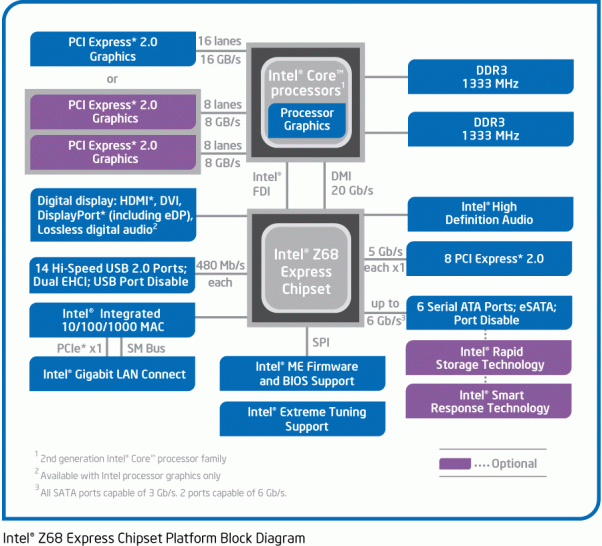
Natively, the board features two full length PCI-E slots which operate electrically at x16 when one slot is populated and x8 when accommodating SLI or Crossfire, but as with the p67, some manufacturers such as Gigabyte have taken it upon themselves to roll out their own flagship variants which feature Nvidia’s old “lane-doubling” warhorse, the Nf200, thereby allowing users to install as many as 3 individual graphics cards with each operating at x8.
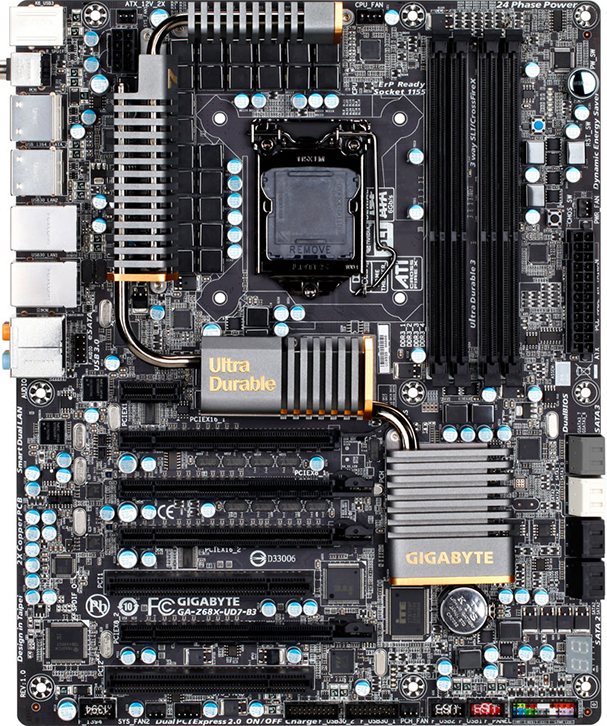
Gigabyte keeps things consistent with its high-end take on Inte’s brand new z68 chipset. Meet the GA-Z68X-UD7-B3, which is visually indistinguishable from its p67 counterpart, the GA-P67A-UD7-B3.
For those who have yet to set foot in a Sandy wonderland, a new build based around one of these boards might be well advised but early adopters of the platform, especially those with p67 boards have very little to gain and would likely invest in an additional SSD for their current systems than suffer the hassle an expense of another major upgrade so soon.